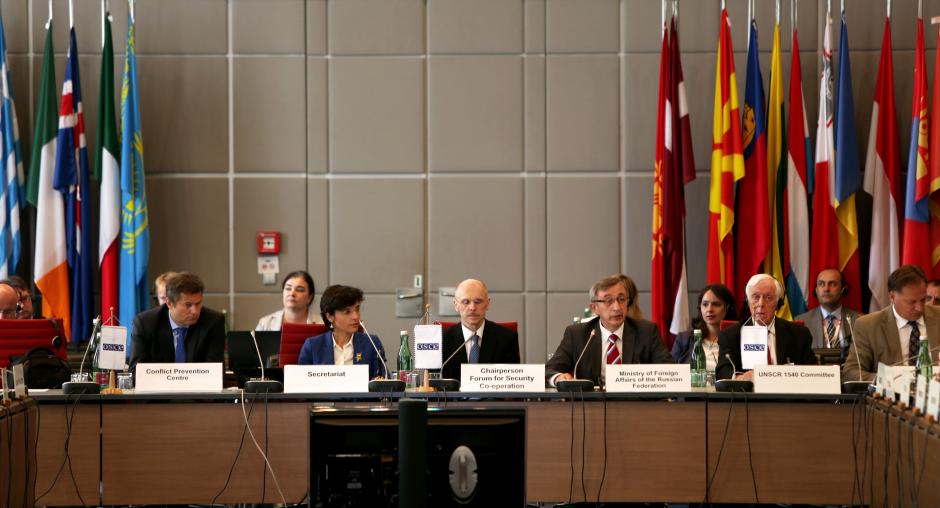International co-operation on implementing UN Security Council resolutions on non-proliferation of weapons of mass destruction discussed in OSCE Forum for Security Co-operation

International and national efforts to implement UN Security Council Resolution (UNSCR) 1540 and pursuant resolutions that aim to prevent the proliferation of weapons of mass destruction (WMD) and stop them from falling into the hands of non-state actors were discussed in the Forum for Security-Co-operation on 7 June 2017.
Terence Taylor, Co-ordinator of the Group of Experts of the UNSCR 1540 Committee, said that during the nearly thirteen years since its adoption, the Resolution “has become one of the key components of the international regime to prevent the proliferation of weapons of mass destruction.”
He stressed the importance of vigilant implementation of the regime and noted in particular the adoption of UNSCR 2325 last year, calling on all states to strengthen their efforts to implement the obligations under UNSCR 1540 effectively.
Taylor said that all participating States of the OSCE already have substantial legislation and controls in place for these obligations, but “legislative and regulatory gaps remain in many countries.”
He noted that while the responsibility for implementation lies with individual states, such efforts “can benefit from collaboration among states, whether bilaterally or collectively, on a regional basis.”
In this regard he highlighted the OSCE’s support to some participating States, including Kyrgyzstan, Turkmenistan and Uzbekistan, with respect to the development and implementation of UNSCR 1540 National Implementation Action Plans, as well its work to promote the appointment of national points of contact for UNSCR 1540.
Grigory Mashkov, Principal Counsellor of the Department for Non-Proliferation and Arms Control in Russia’s Foreign Ministry, presented his country’s export control system and experience in the context of UNSCR 1540 implementation.
He underlined the need for regional, particularly within the OSCE, and international co-operation to create a robust obstacle to prevent obtaining the WMD material by non-state actors, including terrorists.
“We are open for a dialogue on a bilateral and multilateral level with all interested parties to strengthen, through national export controls, the global non-proliferation regime,” Mashkov said.
